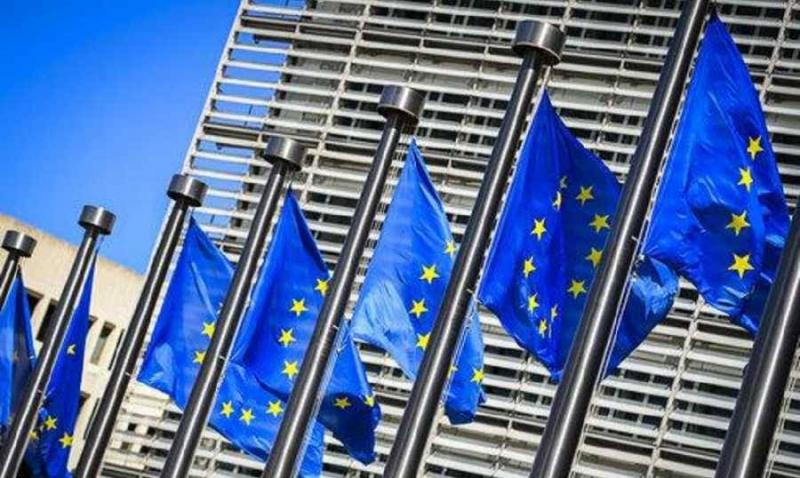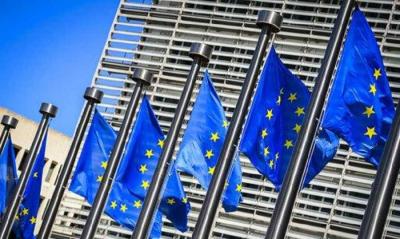The European Parliament is set to adopt a resolution regarding Lebanon in the coming days, before the end of July, based on conclusions reached during a recent session dedicated to discussing the situation in Lebanon, which included the European Union Commissioner for Crisis Management, Lenar Čič. According to the final report, all options are on the table, including the option of imposing sanctions on those obstructing progress.
A summary of the session indicates that several European lawmakers strongly criticized the Lebanese political forces for hindering the election of a president, the rampant corruption, and the unimplemented reforms. They emphasized the necessity for the return of Syrian refugees to their home country and holding accountable the political class that has devastated the state.
In his remarks, the EU Commissioner expressed "deep disappointment and grave concern over the long-standing stalemate on the ground." He stated that EU member states will review the EU sanctions regime regarding Lebanon at the end of July, and "all options are open," stressing that the condition for any potential financial support, not just from the EU, but also from many other partners, is the implementation of reforms. Thus, the urgent need for presidential elections, government formation, and municipal elections has become more critical than ever, while noting that "the situation of Syrian refugees in Lebanon is a major source of concern."
The conference, which kept its members' discussions confidential, featured interventions from European lawmakers regarding Lebanon. German MP David McAllister, representing the European People's Party and chairing the Foreign Affairs Committee, spoke of the "very alarming situations in Lebanon," urging the EU to intervene "to prevent the collapse of the state and to help alleviate the suffering of the Lebanese people with a strong focus on demanding reforms."
Portuguese MEP Isabel Santos from the Progressive Alliance of Socialists and Democrats criticized the "rampant corruption and the political system based on power-sharing among sects, the collapse of the banking system, and impunity," calling for accountability for "those who are destroying the lives of the Lebanese. We know their names and we have means in our hands, and we must act, because the country cannot wait any longer."
French MP Christophe Grudler, who is responsible for the Lebanon file within the Renew Europe group, urged the EU to "confront the corruption that is ravaging this beautiful country." French MP Mounir Satouri from the Greens group announced an upcoming visit to Lebanon "to carry a clear message: Lebanese politicians must put an end to corruption." Meanwhile, Polish MP Adam Bielan from the European Conservatives and Reformists group stated that "the situation in Lebanon deserves our attention," stressing that the political scene in the country is also a cause for concern, as foreign intervention, particularly Iran's support for Hezbollah, exacerbates the political deadlock and deepens the crisis.
French MP Thierry Mariani from the Identity and Democracy group remarked at the Brussels conference that "what the Lebanese want is help to return the refugees to their country." He stated, "Let’s be clear; the EU refuses to consider this for political reasons. We do not want to negotiate with the Syrian regime, and we do not want to recognize it even though it is the one that won the war, whether you like it or not. So what will we do? Will we let Lebanon pay the price for this for fifty years? Will we tell it to keep the refugees on its land? Comparing the number of refugees in Lebanon to the population and applying that ratio to the French demographic reality, imagine that in France, we have 22 million refugees. This is what the number of refugees represents for Lebanon."
His comments intersected with those of Spanish MEP Marisa Matías from the Left group, who expressed sympathy for "Lebanon, which hosts the largest number of refugees." Hungarian MEP Kinga Gall (Independent) called for Europe to "play a role in managing the crisis and assist Lebanon locally to avoid a massive migration flow to Europe."
Spanish MEP Dominik Ruiz Devesa from the Alliance of Liberals and Democrats for Europe addressed the "notable case" of Lebanon's Central Bank Governor Riad Salameh, asking, "Is the European Commission ready to bring up the issue of imposing sanctions on the Central Bank Governor under the sanctions regime for Lebanon adopted by the EU Council?" Romanian MEP Dacian Cioloș from the Renew Europe group called for "independent justice to be a priority with any new president or government." Hungarian MP György Hölvényi from the European People's Party supported calls for accountability for those "standing in the way of the vital reforms needed for a long time." French MP Salima Yanbou from the Renew Europe group went further, calling for the implementation of a sanctions regime to expose (by name) those corrupt political figures, businessmen, and bankers responsible.
Belgian MEP Jean-Christophe Lagarde from the Renew Europe group stated, "The reforms demanded by the International Monetary Fund cannot be implemented, because there is a corrupt political class in Lebanon that puts its personal interests ahead of those of the country, in addition to the political arm of Hezbollah, which often makes any consensus impossible."
### Concluding Remarks
In the concluding notes, the report indicated that "the situation will be reviewed before the end of July within the Council of the EU in light of recent developments. All options are on the table, especially in the event of an escalation of the situation." The European Commissioner concluded in his report, "The EU will continue to closely monitor the crisis in Lebanon and all the tools at our disposal will be taken into account, but we need Lebanese leaders to step up to their responsibilities now more than ever. It is time for Lebanese leadership to meet the needs of its people."




